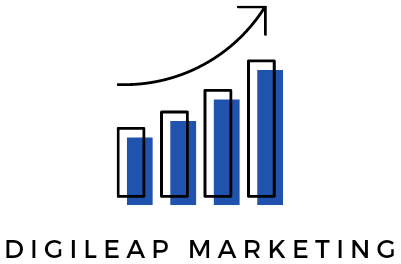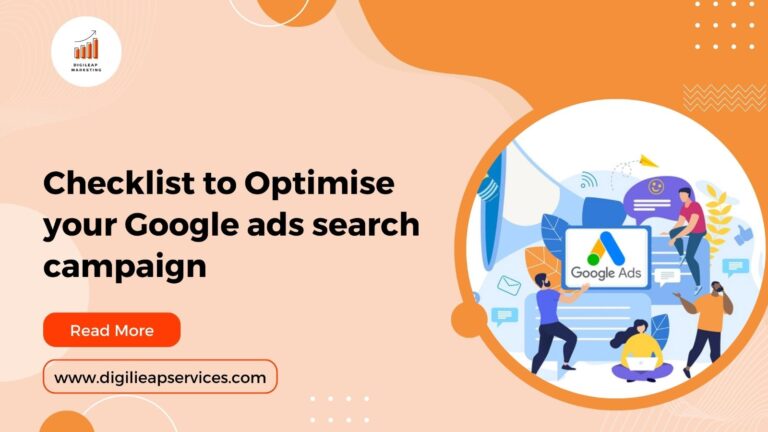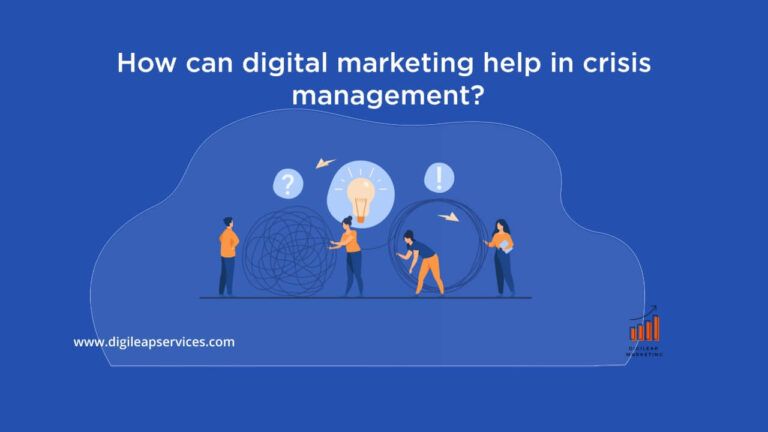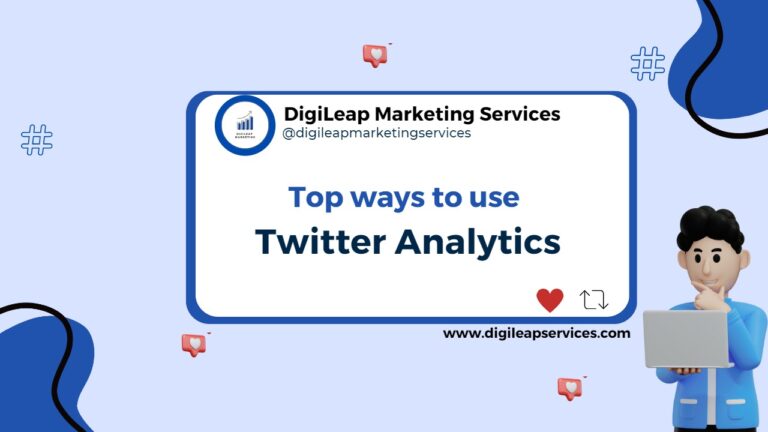The future of AI in Digital Marketing: Trends and predictions
The world of digital marketing is changing fast, gaining the attention of marketers and tech enthusiasts. AI can analyze large amounts of data, make predictions and automate processes that have changed how businesses connect with their audience. AI chatbots provide instant customer support for personalized product recommendations. AI is transforming and opening new doors for the future of digital marketing.
Let us try to understand Artificial Intelligence and how it can help create a more personalized, efficient marketing strategy. AI has opened up several opportunities in the world of digital marketing.
Benefits of AI in digital marketing
AI has changed the digital marketing space by offering businesses many benefits. Traditional marketing strategies rely on manual data analysis, which is time-consuming and often incorrect, but AI can analyze huge amounts of data. With its huge data analysis ability, AI can provide customers with insights and recommendations.
Secondly, AI can improve customer targeting and personalization in digital marketing. After analyzing customer data, AI algorithms can identify individual preferences, which can help businesses connect with customers more effectively.
Additionally, marketers can now focus on strategic planning and creativity because AI tools automate repetitive tasks freeing up more time. AI also allows businesses to improve their marketing strategies and efficiency by handling tasks like data entry, content creation, and scheduling.
Examples of AI in Digital Marketing
To understand the full impact of AI in digital marketing, let us take some real-life examples of how businesses are using this technology to get favorable results. One of the most prominent examples is chatbots. Chatbots can answer customers’ questions and provide recommendations based on their preferences. This improves customer satisfaction and reduces the workload.
Another important example of AI is predictive analysis. AI can analyze customer data, browsing history, and social media behavior to predict customer preferences. This information can help deliver high-target ads to the right audience to increase the chances of conversion and increase return on investment.
AI has changed the way content creation is done. Natural language processing algorithms save marketers time and resources by generating quality content based on keywords and topics.
AI -Powered Tools for Digital Marketing
AI is continuously growing in the marketing industry with a wide range of tools and platforms helping businesses. These tools are useful in multiple things, like data analysis, predictive modeling, chatbot development, and content creation. Let us understand these AI-powered tools that are changing the digital marketing space.
One of the AI tools is Salesforce Einstein which integrates with Salesforce customer relationship management software (CRM). Einstein uses AI algorithms to analyze data, identify trends, and predict customer behavior. This information helps in creating personalized marketing campaigns and better customer targeting.
Another popular tool by AI is Google’s AutoML, which allows businesses to create machine-learning models without extensive coding knowledge. With the use of AutoML, it is possible to make AI algorithms analyze customer data and develop personalized product recommendations.
Businesses looking to use chatbots have platforms like Chatfuel and ManyChat, offering intuitive interfaces and pre-built templates. These chatbots can handle customer inquiries and provide support.
How AI Improves Customer Experience in Digital Marketing
With Digitization, customer experience has become very important to make any business successful. AI helps improve customer experience by offering personalized, efficient, and responsive interactions. Let’s see how AI improves the customer experience in digital marketing.
Chatbots are a new way to go to improve customer experience. AI algorithms-powered chatbots can provide instant and personalized customer support anytime. There is no need to wait for a human representative to address queries and get personalized answers.
By analyzing customer data and behavior, AI algorithms can even recommend products, services, and content relevant to the customers. Personalization can create an engaging and tailored customer experience, increasing satisfaction and loyalty.
Additionally, AI-powered recommendation engines can improve the online shopping experience. These engines can suggest products that customers will be interested in by analyzing customer data and purchase history. This helps customers discover new products and simplifies the decision-making process.
Ethical Considerations of AI in Digital Marketing
AI can potentially improve digital marketing strategies but with ethical considerations that businesses must address. The main concern is data privacy and security. AI algorithms rely on large amounts of data to make predictions and recommendations. This data often have sensitive information like personal details, purchase behavior, and browsing history. So, businesses need to ensure data protection measures to protect customer information and comply with data privacy regulations.
Another ethical aspect is transparency. AI algorithms make decisions based on data analysis, but the logic behind these is unknown to humans. This lack of transparency can lead to discrimination in targeted advertisement and recruitment areas. Businesses need to develop AI systems that are transparent and accountable to ensure that the decisions are fair.
AI is continuously automating marketing tasks which raises a concern about job displacement. Businesses must invest in retainment and upskilling employees to adapt to changing job space.
Data Analysis and AI in Digital Marketing
The core of effective digital marketing is data analysis, as AI is changing how data is analyzed and interpreted. AI algorithms can process large amounts of data and identify patterns and trends. This analysis helps businesses gain insights into customer behavior, preferences, and market trends.
AI has a predictive model that is improving data analysis. AI algorithms can analyze historical data to accurately predict customer behavior, market trends, and sales forecasts. This helps businesses anticipate customer needs, form their marketing plan and stay ahead of the competition.
AI has also made it possible to carry out sentiment analysis by analyzing customer feedback, social media posts, and online reviews. AI algorithms can read the sentiment behind the text and, based on that, can identify customer preferences and points of improvement. This will help businesses understand the customer and make their marketing strategy considering their target audience.
AI algorithms can also automate the process of data cleansing and integration. Data cleansing is identifying and correcting errors and duplicates for more accurate and reliable data. Data integration is combining data from multiple sources and creating a unified view. Businesses can save time and resources by automating these processes.
Future Predictions for AI in Digital Marketing
As AI continues to grow, the future of digital marketing looks promising. There are some predictions as to how AI will shape the future of digital marketing.
Firstly AI-powered chatbots will be more sophisticated and human-like. Natural language processing algorithms will enable chatbots to understand and respond to difficult queries, providing a personalized experience. Chatbots will also be used with voice assistants to enable customers to use voice commands.
Secondly, AI algorithms can deliver personalized AR (Augmented reality) and VR (Virtual reality) content by analyzing customer data and enhancing the immersive experience.
Thirdly, personalization in marketing will be continuously improved. Businesses can deliver highly targeted and contextually relevant marketing messages on different channels with AI becoming more advanced. Personalization will not be limited to product recommendations but will cover the entire customer journey.
Conclusion
AI has changed the future of digital marketing by offering businesses a variety of benefits and opportunities. From analyzing huge amounts of data and automating repetitive tasks to predicting customer behavior and enhancing personalization, AI has reshaped the way businesses used to connect with their audience.
As AI continues to grow, the possibilities for digital marketing are endless. However, businesses must also consider the ethical implications and ensure robust data protection. Contact Digileap Marketing Services for more analysis of various digital marketing strategies.












